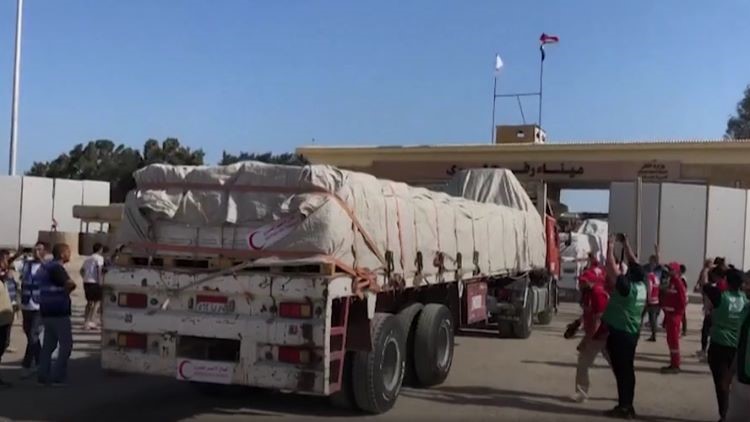The Diplomat
The Government of Spain yesterday condemned the attack carried out on May 1 by a group of violent Israeli settlers against two humanitarian aid convoys coming from Jordan and bound for the Gaza Strip.
“The action of the Israeli authorities, following the arrest of those responsible, remains essential to ensure security conditions for humanitarian access,” declared the Ministry of Foreign Affairs in a press release. “The protection of humanitarian workers is an obligation under International Humanitarian Law,” it continued. “The Government welcomes the efforts of the Government of Jordan to facilitate the necessary arrival of humanitarian aid to Gaza,” it concluded.
The Government of Jordan denounced on May 1 the attack by a group of “extremist” Israeli settlers against two convoys with basic supplies for the Gaza Strip and accused the Israeli authorities of failing to fulfill their obligation to protect these vehicles. One of the convoys was heading to the Kerem Shalom Pass and the other intended to enter Gaza through the Erez Pass. Both managed to reach their destination despite the attack.
The United States has described the attack as “unacceptable” and has urged Israel to take measures to prevent these events. For his part, the EU High Representative for Foreign and Security Policy, Josep Borrell, has condemned this “despicable” attack against the humanitarian convoy. “Israel must guarantee the safe delivery of aid,” he warned yesterday through social networks.
On March 4, the Minister of Foreign Affairs, José Manuel Albares, announced, before the Joint Commission for the European Union of the Congress of Deputies, that the Spanish Government had “initiated the procedures to impose sanctions on a first group of twelve violent settlers from the West Bank”, just as countries like the United States and the United Kingdom have done.
Two weeks later, the 27 EU member states reached an agreement to sanction Jewish settlers involved in violence against Palestinians in the West Bank, a measure that had not been possible to agree at the Foreign Affairs Council (FEA) from February to due to Hungary’s veto and which had been adopted individually by Spain.







